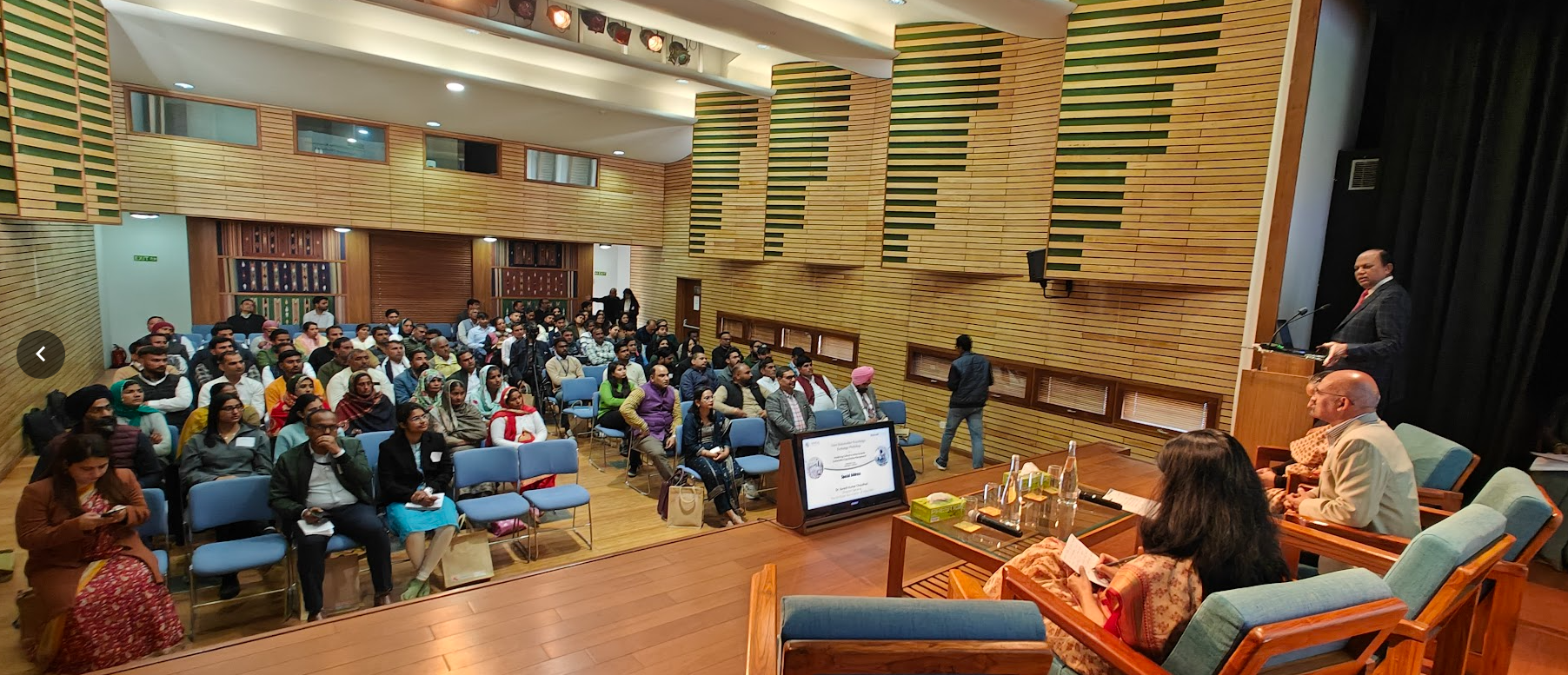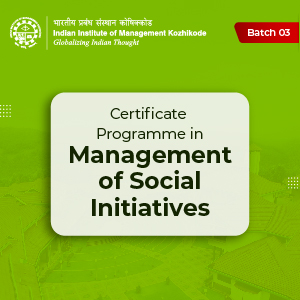Inter-stakeholder Knowledge Exchange Workshop on Sustainable Crop Residue Management fosters collective action
By SM Sehgal Foundation
February 24, 2025

S M Sehgal Foundation organized an Inter-Stakeholder Knowledge Exchange Workshop to mobilize collective action for sustainable crop residue management (CRM) at Gurugram, Haryana. The event brought together key stakeholders including policymakers, researchers, agriculture experts, industry representatives, and farmers to deliberate on innovative solutions for reducing crop residue burning and promoting sustainable alternatives.
The workshop aimed to enhance collaboration among diverse stakeholders, share best practices, and explore sustainable solutions to address the challenges of crop residue management. Key focus areas of the workshop included the following:
- Promoting Sustainable Agricultural Practices: Encouraging the adoption of sustainable CRM practices to reduce air pollution and enhance soil health.
- Facilitating Knowledge Exchange: Providing a platform to share innovative technologies and best practices that can improve crop productivity and offer alternatives to residue burning.
- Sharing Community Experiences and Insights: Highlighting community experiences to foster collective learning and guide future interventions that are sustainable and impactful.
Senior officials from the Ministry of Agriculture and Farmer Welfare, Indian Council of Agriculture Research (ICAR), Indian Agriculture Research Institute (IARI), agriculture universities like Punjab Agriculture University, industry experts from CII, The Nature Conservancy, Energy Harvest Charitable Trust, and Center for Science and Environment actively participated, emphasizing the need for a multi-stakeholder approach. Experts discussed successful case studies on innovative CRM models which have the potential to reduce burning incidents significantly.
Special Guest, Dr. Suresh Kumar Chaudhari, Director General, Fertilizer Association of India (FAI) shared, “Collective action and willingness can be the only way to address this issue. Lots of efforts are being made in this direction, and it needs a collective view and approach by several players, including the farmers.”
During the workshop, the farming community members shared their experiences highlighting the importance of awareness on CRM, access to cost-effective farm machinery, and the significance of crop diversification. The knowledge exchange provided valuable experiential insights, highlighting both the challenges and opportunities from an inter-stakeholder perspective.
Speaking at the event, Nishant Gupta, Social & Environmental Impact Advisor, Walmart.org, mentioned, “Sustainable crop residue management is critical for environmental protection, soil health and air quality improvement. Collaborative efforts are essential to scale up solutions that are both economically viable and ecologically sustainable.”
Anjali Makhija, Trustee and CEO, S M Sehgal Foundation, said, “The workshop has been a vital platform for sharing innovative solutions and aligning stakeholders toward a common goal. The topical discussions will lead to convergence of efforts in this regard and pave the way for collaborative action.”
The workshop served as a pivotal platform to align efforts across sectors and strengthen commitments towards sustainable agricultural practices. It reinforced the urgency of collective action in mitigating the adverse impacts of crop residue burning and enhancing long-term agricultural sustainability.
About the Crop Residue Management Project
Recognizing the detrimental effects of crop residue burning on soil health, human well-being, and the environment, S M Sehgal Foundation with support from Walmart Foundation is implementing a project on Crop Residue Management in districts Kaithal and Kurukshetra, Haryana. The project aims to directly impact 15,000 farmers across 100 villages. Farmers have been trained on how to reduce carbon dioxide (CO2) emissions resulting from crop residue burning along with recommending sustainable solutions for crop residue management, with a focus on improving soil health and crop productivity. These solutions include the use of a super seeder for mixing the crop residue in situ and the promotion of short-duration varieties of paddy as well as capacity building in agriculture.
© Renalysis Consultants Pvt Ltd







.jpg)


.png)